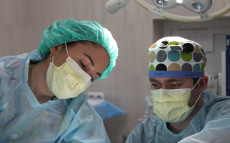- pathfindersAI
- Job Profile
Dental Hygienists
Summary
Dental Hygienists: A Flourishing Career in Oral Health
What They Do
Dental hygienists are indispensable members of the dental care team, primarily responsible for preventive oral health care. These professionals specialize in using diagnostic tools and therapeutic techniques to manage gum diseases, apply preventive materials, and educate patients on maintaining optimal oral health. Dental hygienists are adept at cleaning teeth, taking X-rays, and assessing oral health conditions, enabling them to develop insights into the dental needs of their patients. Their role is integral to helping patients maintain healthy teeth and gums, thus contributing significantly to overall health and well-being.
Job Responsibilities
The job responsibilities of a dental hygienist are multifaceted and encompass a range of tasks aimed at maintaining oral health. Core duties include performing dental cleanings, such as scaling and polishing teeth, to remove tartar, stains, and plaque. They are proficient in conducting oral examinations to identify signs of gum disease, tooth decay, and other oral health issues. Dental hygienists also take and develop dental X-rays, applying their technical know-how to ensure accuracy and safety. An essential part of their responsibilities includes educating patients on oral hygiene techniques, such as proper brushing and flossing methods, and the importance of regular dental check-ups. Furthermore, they prepare treatment rooms and sterilize instruments to maintain a clean and safe clinical environment.
Essential Skills
To excel as a dental hygienist, one must possess a combination of technical and interpersonal skills. Technical proficiency in using dental instruments, software, and radiographic equipment is fundamental. Attention to detail is critical in diagnosing and treating oral health issues accurately. Strong analytical skills aid in interpreting X-rays and assessing overall oral health. Equally important are excellent interpersonal and communication skills, which enable dental hygienists to effectively educate patients and alleviate their anxieties about dental procedures. Time management skills are essential to efficiently manage appointments and ensure each patient receives timely care. Additionally, manual dexterity and physical stamina are crucial, as the role involves performing repetitive tasks and standing for extended periods.
Educational Pathways
Embarking on a career as a dental hygienist requires a blend of academic preparation and practical training. Aspiring dental hygienists typically begin with an associate degree in dental hygiene, which is offered by many community colleges and technical schools. The program usually spans two to three years and includes coursework in subjects such as anatomy, periodontology, radiography, and pharmacology. Additionally, students gain hands-on experience through clinical practice under the supervision of licensed professionals. For those seeking advanced opportunities and specialized roles, pursuing a bachelor’s or master’s degree in dental hygiene can be advantageous. After completing their education, dental hygienists must obtain licensure by passing the National Board Dental Hygiene Examination and a state or regional clinical examination.
Career Prospects
The career prospects for dental hygienists are promising, with robust demand projected in the coming years. According to the U.S. Bureau of Labor Statistics, employment of dental hygienists is expected to grow due to increased awareness of oral health and an aging population requiring comprehensive dental care. Dental hygienists can find employment in various settings, including private dental practices, public health clinics, educational institutions, and research facilities. Some may choose to specialize in areas such as pediatric dentistry, periodontal therapy, or orthodontics. Opportunities for advancement include roles in dental hygiene education, administration, and community health advocacy. Additionally, dental hygienists who pursue further education can transition into roles such as dental hygiene practitioners or oral health program directors.
Conclusion
A career as a dental hygienist offers a fulfilling blend of patient care, technical expertise, and educational outreach. It is a profession that not only provides stable employment opportunities but also the satisfaction of making a tangible difference in individuals' oral and overall health. With a strong foundation of essential skills and strategic educational pathways, dental hygienists are well-prepared to meet the evolving demands of the healthcare industry. For those passionate about preventive care and patient education, becoming a dental hygienist is a rewarding career choice that promises both personal and professional growth.
Video
Compensation
| State | Median Salary | Median Hourly | Positions |
|---|---|---|---|
| AL | 57,400 | 27.59 | 3,070 |
| AK | 122,340 | 58.82 | 610 |
| AZ | 93,840 | 45.12 | 4,880 |
| AR | 78,500 | 37.74 | 1,830 |
| CA | 120,640 | 58.00 | 24,880 |
| CO | 103,610 | 49.81 | 4,700 |
| CT | 94,500 | 45.43 | 3,170 |
| DE | 96,880 | 46.58 | 710 |
| DC | 119,710 | 57.55 | 230 |
| FL | 80,530 | 38.72 | 13,050 |
| GA | 80,250 | 38.58 | 7,380 |
| HI | 94,800 | 45.58 | 1,130 |
| ID | 82,740 | 39.78 | 1,420 |
| IL | 81,920 | 39.39 | 7,730 |
| IN | 82,340 | 39.59 | 4,770 |
| IA | 81,060 | 38.97 | 2,260 |
| KS | 78,670 | 37.82 | 2,080 |
| KY | 75,180 | 36.15 | 2,230 |
| LA | 82,330 | 39.58 | 2,200 |
| ME | 79,570 | 38.25 | 840 |
| MD | 102,010 | 49.04 | 3,590 |
| MA | 100,750 | 48.44 | 5,010 |
| MI | 77,800 | 37.41 | 8,370 |
| MN | 93,140 | 44.78 | 4,990 |
| MS | 63,230 | 30.40 | 1,550 |
| MO | 80,020 | 38.47 | 3,520 |
| MT | 90,210 | 43.37 | 930 |
| NE | 82,020 | 39.44 | 1,570 |
| NV | 97,620 | 46.93 | 2,160 |
| NH | 93,220 | 44.82 | 1,480 |
| NJ | 99,330 | 47.76 | 6,060 |
| NM | 95,120 | 45.73 | 1,110 |
| NY | 93,600 | 45.00 | 12,100 |
| NC | 81,230 | 39.06 | 6,470 |
| ND | 81,740 | 39.30 | 710 |
| OH | 79,680 | 38.31 | 8,470 |
| OK | 97,280 | 46.77 | 2,280 |
| OR | 105,700 | 50.82 | 2,930 |
| PA | 77,560 | 37.29 | 7,750 |
| RI | 83,960 | 40.36 | 770 |
| SC | 78,170 | 37.58 | 3,100 |
| SD | 80,770 | 38.83 | 610 |
| TN | 75,500 | 36.30 | 4,680 |
| TX | 89,160 | 42.86 | 11,510 |
| UT | 79,390 | 38.17 | 3,030 |
| VT | 94,880 | 45.61 | 560 |
| VA | 91,060 | 43.78 | 4,080 |
| WA | 127,180 | 61.14 | 6,620 |
| WV | 66,970 | 32.20 | 1,170 |
| WI | 79,320 | 38.13 | 4,880 |
| WY | 79,040 | 38.00 | 440 |
Similar Occupations
In this area you will find other occupations that are close to the one you were viewing in tasks, knowledge and work environment. If the primary job profile you are viewing isn't quite to your liking, take a look around and see what else is available.
Basic and Premium Accounts have more alternative occupations available than the Free account.

Acute Care Nurses - 29-1141.01
Acute Care Nurses provide immediate and intensive care to patients with severe, life-threatening conditions, often working in environments such as emergency rooms, intensive care units, and surgical wards. They monitor vital signs, administer medications, and collaborate with multidisciplinary teams to ensure rapid and effective treatment.
-
$86,070/yr
Median Pay -
3,175,390
Number of Jobs

Dental Assistants - 31-9091.00
Dental Assistants support dentists in a variety of tasks, including preparing patients for procedures, sterilizing instruments, and taking dental X-rays. They also assist during dental procedures, manage patient records, and provide patient education on oral hygiene.
-
$46,540/yr
Median Pay -
370,690
Number of Jobs